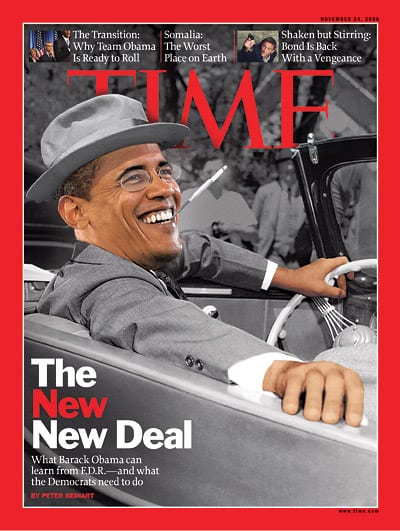JIM GERAGHTY: DO YOU RECALL THE OBAMA ADMINISTRATION’S “STRAY VOLTAGE” THEORY?
The gist was, “the president purposefully overstates his case knowing that it will create controversy… Controversy sparks attention, attention provokes conversation, and conversation embeds previously unknown or marginalized ideas in the public consciousness.” Part of it was a cynical calculation to let an argument about a presidential statement ensure a topic stayed front and center in the public’s mind; there’s also the side effect of ensuring that a brouhaha about a presidential statement overshadowed actual policy decisions – decisions that may be more consequential, but are less dramatic and interesting to the news media.
Almost like, say, a president-elect declaring he wants to strip away the citizenship of those burning the flag.
If the incoming Trump administration really is using a variation of the “stray voltage” approach, and Democrats really have an uncontrollable impulse to focus on the controversial statement du jour, the Trump administration could end up being stunningly effective in policymaking. A lot of seemingly dry and boring regulations can be repealed, executive orders withdrawn, rewritten and issued, legislation passed by GOP majorities in Congress and signed, all while the political world froths at the mouth about the president’s latest Tweet or denunciation of the media, or theater performers, or anything else that comes to mind.
You can enact sweeping, dramatic changes to Americans’ lives under the radar. As our friends at the Weekly Standard noted, the charter school movement grew enormously over the past 25 years, in large part because it wasn’t a big, Washington-focused political battle. Today, “43 states have charter-school laws, and approximately 3 million kids attend almost 7,000 charters across the country.” This happened without any giant federal legislation or heated governmental clashes in the national spotlight.
Could this really happen? Could the next four (eight?) years really turn out to be a golden era for conservative policy?
Let’s not get too far ahead ourselves. I’m old enough to remember the wild – and wildly naïve – optimism of the left right around this time in November of 2008.
QED:

